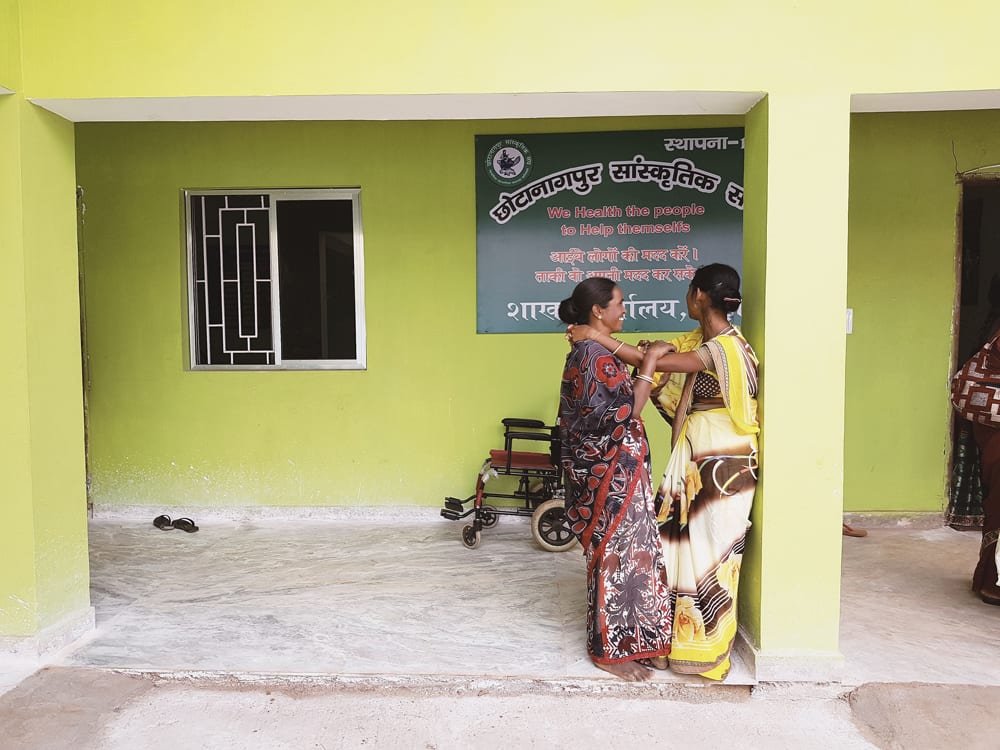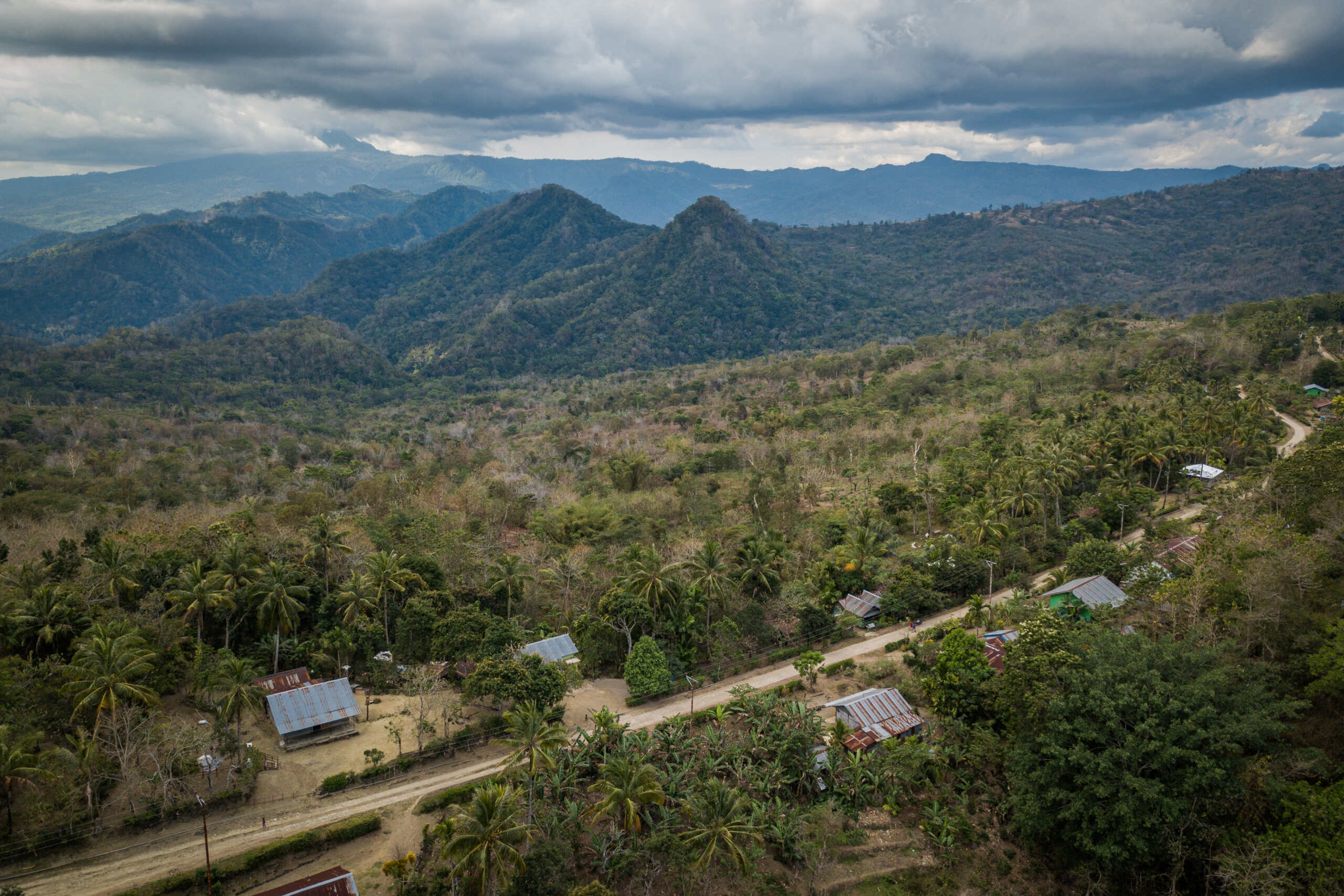Speaking truth to power: supporting women with disabilities to seek justice
Stories | December 23, 2021
This blog was written by Erin Ryan, who works in CBM Australia’s Policy and Advocacy team. Erin recently travelled to India to meet the incredible people fighting against violence against women and girls with disabilities.
From the high canopies of its trees, to the bright saris of its tribal women, to the okra we ate with our hands for lunch, the east Indian state of Jharkhand is coloured with more shades of green than I’d ever seen before. Life blooms in abundance here – but survival can be difficult for many of Jharkhand’s people, particularly those facing the intersecting challenges of poverty, gender and disability.
Over the course of a week, CBM staff and I wound our way across the state, dodging errant cows and even monkeys, to visit CBM’s partner staff and beneficiaries of a poverty reduction and inclusive development program.
Supported by Australian aid and CBM supporters, the program seeks to ensure that health, education, vocational training, sustainable livelihood opportunities and rehabilitation services are accessible to people with disabilities, particularly women and children.
In each village we visited, we were greeted with tribal songs and garlands of marigolds to hang around our necks. We were also met with stories from women and girls, highlighting threats to women’s wellbeing ranging from limited employment prospects to early marriage to sexual violence. In many places in India, reporting of sexual assault is infrequent and reliable data is hard to come by. However, we know that globally, women and girls with disabilities are two to three times more likely to experience violence than women without disabilities[1]. These women and girls are often perceived as having lower value, or are seen as “easy targets”. Already at heightened risk, they face additional barriers to accessing justice or support in the aftermath of violence.

On one hot afternoon, sitting in the shade of mango trees, I met a woman fighting back against these barriers. Aruna* is aged in her 20s, and has a vision impairment. She was also recently sexually assaulted. As we met, she was in the process of bringing her case to the courts, and she had travelled to this village just so she could share her story with us.
The cost and inaccessibility of the court process means that justice can remain elusive for many women with disabilities. But Aruna had support from CBM’s local partner, which delivers inclusive development programs through its rehabilitation wing, and also mobilises local women through its women’s rights wing. CBM’s local partner has supported women with disabilities to better understand the rights to which all women are entitled, to undertake advocacy, and to access opportunities in training, livelihoods, and justice.
For women like Aruna, the support of CBM’s partner is invaluable. While Aruna’s case remains in the courts, her determination to seek justice and hold the perpetrators of sexual violence to account has already challenged norms and demonstrated to women, men, girls and boys in her community that justice should serve all people, of all genders and all abilities.
Leaving by crowded overnight train and watching the lights of the city fade into the darkened greens of trees at dusk, I wondered how many more women like Aruna I was passing by. The numbers are likely to be staggering.
By working in partnership with local organisations with established links to communities of women and people with disabilities, the numbers of women accessing support are also significant. Work to change systems like the courts and the attitudes that underpin sexual and gender-based violence will take time. But with each woman like Aruna, a shift in a community occurs. It is with each shift that space is created for women – including women with disabilities – to advocate for their rights, and better support their communities to thrive.
CBM’s Poverty Reduction and Community Based Inclusive Development Project works across the sectors of health, education, livelihoods, social participation, and empowerment to improve the quality of life of people with disabilities.
This project is funded by CBM Australian supporters and also receives support through an Australian aid program funded by the Australian Government.
* Name changed.
[1] Department for International Development [DFID]. (2000). Disability, Poverty and Development.
Photo: Women and girls in India
https://www.cbm.org.au/stories/speaking-truth-to-power
Related Stories

Week 3 – Lent series 2026
This week, we’re reflecting with our colleague Christian, Supporter Relationship Specialist at CBM Australia, who turns to John 13:34–35 (NIV): “A new command I give...

Week 2 – Lent series 2026
As we continue our Lent journey, we’re grateful to share a heartfelt reflection from CBM Australia’s Head of Program Impact Operations, Kieran Cummins, who...

Building inclusive, climate resilient communities in Bangladesh
Highlights from DFAT Post’s visit In January 2026, representatives from the Australian High Commission in...
